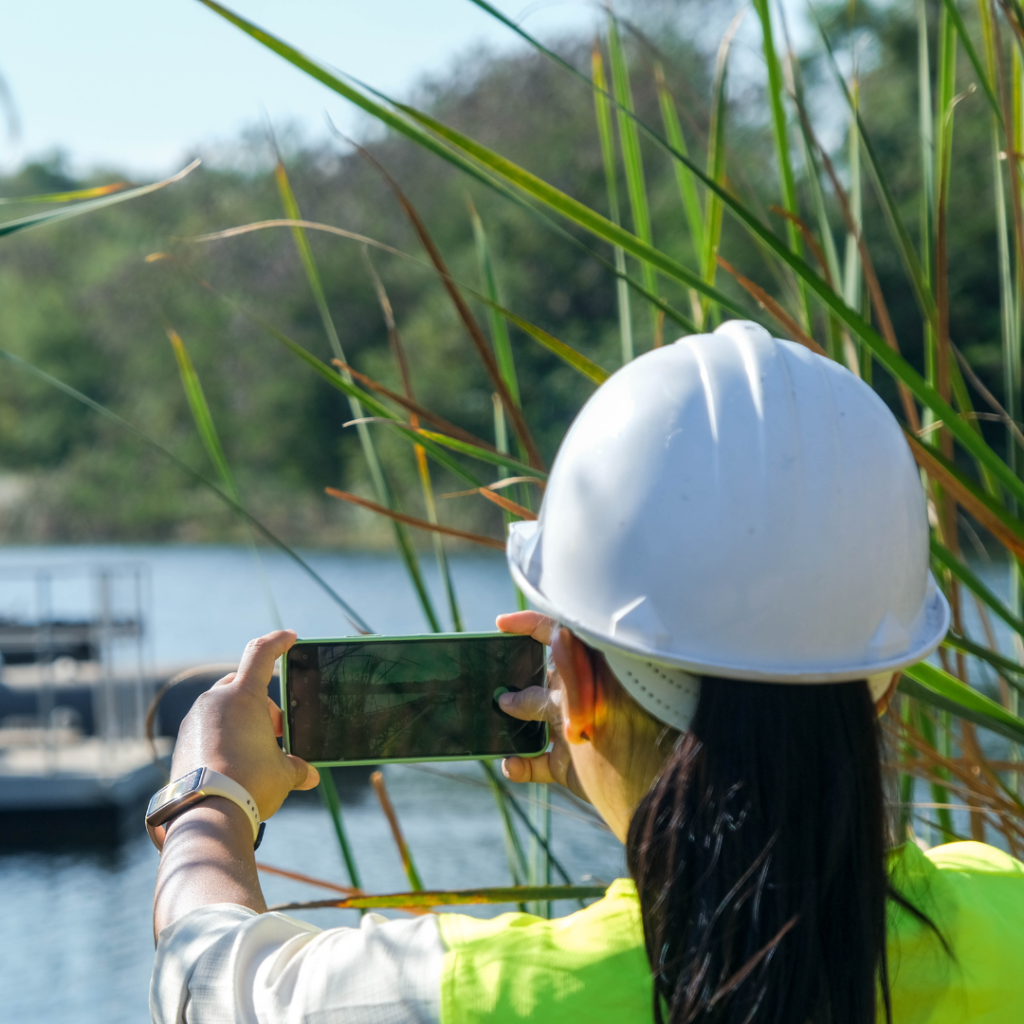20 Best Online Master’s in Environmental Science

Find your perfect college degree
With the growing threat of climate change and various environmental challenges, environmental scientists are more relevant than ever. According to the Bureau of Labor Statistics, environmental scientists and specialists earn a median pay of $76,480 annually.
Much of this master’s degree involves quantifying the impact of human activity on the environment and understanding the influence of science on the policies that directly affect the environment.
In this graduate degree, students will acquire scientific knowledge on natural ecosystem processes and what can be done to reduce their negative impact on them. This involves the study of policies and laws that can be presented to key people in the government and other relevant organizations.
Overview
Graduates with an advanced degree in Environmental Science can find employment in a multitude of disciplines, encompassing water management, geology, sustainable energy, and environmental technology, among others.
Many universities and colleges in the country offer online master’s degrees in environmental science, which allows students interested in pursuing their advanced education to study at their own pace.
Quick audio summary:
Methodology
A career in the environmental industry is an ideal choice, especially for prospective students who are passionate about understanding the environment and how the actions of humans can greatly affect it.
Those who want to pursue careers that involve leadership positions will want to consider advancing their knowledge and skills by earning a Master’s in Environmental Science. Our list shows the country’s top-rated graduate programs with these outstanding features:
- Delivered fully web-based or as a hybrid master’s program, requiring adult learners to complete online and in-person requirements,
- Provides an extensive Environmental Science coursework featuring environmental laws and policies alongside the scientific component of the discipline, preparing graduate students for either the doctorate program or career advancement,
- Utilizes a Learning Management System for convenient academic lectures, discussions, or webinars, and easy coursework access online,
- Taught by Environmental Science experts, many of whom hold a terminal degree in the field,
- Properly accredited by academic authorities, showing compliance with the quality standards set by for online master’s degree instruction,
- and, Constantly obtains positive student, alumni, and industry feedback.
Check out our Methodology page for in-depth ranking details.
Best Online Master’s in Environmental Science Online Programs

Ohio University

Athens, Ohio
Master of Sustainability, Security, and Resilience
The Master of Sustainability, Security, and Resilience degree program offered by Ohio University is a 30-credit hour program that features a self-paced curriculum designed for working professionals and prepares students with organizational leadership skills that will help them lead their community or organization in assessing, preparing for, and responding to the various effects of the ecological and environmental issues we face.
The program has a completion time of around 18 months. Students typically take two classes each semester, with the 100% online coursework primarily being delivered asynchronously. The program is structured in a manner that contains three stackable certificates that students can earn on their way to completion.
Johns Hopkins University

Baltimore, Maryland
Master of Science in Environmental Sciences & Policy (online/IN-PERSON)
Johns Hopkins University offers a Master of Science in Environmental Sciences and Policy, an interdisciplinary program that covers a wide array of core skill sets and uses the lenses of ethics, law, policy, history, and economics in preparing change agents that are dedicated to environmental protection. The program consists of courses and includes one onsite residency.
Students can choose to take evening classes on campus or complete most of the program’s coursework online. The program also contains a choice of several focus areas that include Conservation Biology, International Environmental Policy, Sustainability, Environmental Justice & Equity, Climate & Energy, Remediation, and Compliance & Assessment.
University of Florida

Gainesville, Florida
Master of Science – Soil and Water Sciences, Environmental Science track
The University of Florida offers an MS in Soil and Water Sciences degree program with an Environmental Science track. It is a 30-credit hour program ideal for students interested in environmental issues associated with soil and water quality of both natural, urban, and agricultural lands but is otherwise place-bound.
The program can be completed in 2-4 years, and students can choose a thesis or a non-thesis/professional project. A requirement for admission into the program is for students to have a bachelor’s degree or an equivalent from an accredited academic institution with a major in Soil & Water Science or one from an allied field such as:
- natural resources,
- geology,
- ecology,
- agronomy,
- or environmental science.
Students with non-allied degrees will generally have to complete a set of pre-requisite courses before applying for admission.
University of Kentucky

Lexington, Kentucky
Master’s in Applied Environmental and Sustainability Studies
The Master’s in Applied Environmental and Sustainability Studies offered by the University of Kentucky is delivered entirely online. The program is ideal for preparing students to launch careers as sustainability managers, corporate sustainability specialists, or other related roles in corporate, government, or non-government and/or nonprofit organizations.
The program contains a total of 30 credit hours and features an interdisciplinary curriculum that utilizes a wide range of teaching media, project-based learning, and community-based experiential opportunities for students.
Students will be prepared with skills related to environmental studies, sustainability, as well as governance, and policy. A GPA of 2.75 or higher is required for admission into the program, however, GRE/GMAT scores are not.
Kentucky State University

Frankfort, Kentucky
Master of Science in Environmental Studies
Kentucky State University offers a Master of Science in Environmental Studies, an interdisciplinary program aimed at preparing students with skillsets that they can use towards protecting the environment and, in the process, human health. The program’s coursework is also delivered online.
The program contains a total of 36 credit hours, with 24-30 hours of coursework and the rest for the capstone project. Students are trained in a range of skill sets that are related to prevention and mitigation, data collection and analysis, policy advice, habitat restoration, and more.
The program also offers two online certificate programs focusing on two specific areas, namely:
- Environmental Agriculture
- Environmental Policy and Decision-Making
University of North Carolina Greensboro

Greensboro, North Carolina
Master of Science in Sustainability and Environment
University of North Carolina Greensboro offers a Master of Science in Sustainability and Environment degree program, which is offered 100% online. It focuses on the interconnectedness of the environment, the economy, aesthetics, and social equity and is ideal for a wide range of professionals who are interested in addressing sustainability issues in their respective fields.
The program consists of a total of 36 credit hours, with coursework being delivered primarily in an asynchronous format. The program also features a number of focus/specialization areas, which include:
- Society and Equity,
- Natural Sciences,
- Economics and Development,
- as well as Aesthetics and Ethics.
As part of their final requirement, students can also choose to complete an internship, a capstone project, or a master’s thesis.
Unity College

New Gloucester, Maine
Master’s in Environmental Studies & Sustainability (Master of Professional Science)
As an institution focused primarily on sustainability science and the environment, Unity College offers a Master’s in Environmental Studies and Sustainability, a Master of Professional Science degree program as one of its degree programs.
The program contains 30 credit hours and features 100% online coursework combined with fieldwork and in-person enrichment experiences. The program’s curriculum meanwhile emphasizes climate change adaptation and mitigation, as well as conservation of biodiversity and resources, as well as pollution mitigation.
The program also combines technical sustainability with skillsets in the social sciences and humanities to prepare students for working within political, economic, and cultural concerns that relate to sustainability. The program has five start dates throughout the year and is accredited by the New England Commission on Higher Education (NECHE).
Colorado State University

Fort Collins, Colorado
Master of Natural Resource Stewardship
Colorado State University offers a Master of Natural Resource Stewardship, which is a unique program aimed primarily at preparing students for hands-on resource management roles. The program contains 30 credit hours in total and features online coursework.
The program is designed for professionals who are seeking advancement in terms of new skills and knowledge that they can use in the field of natural resources. The program features a broad curriculum but also features opportunities to further specialize in either Ecological Restoration, Forest Sciences, or Rangeland Ecology and Management.
The program also features a wide range of readily-applicable content, including principles on degraded landscape restoration and ensuring compliance with NEPA, or The National Environmental Policy Act.
Wilmington University

Wilmington Manor, Delaware
Master of Science in Environmental Science
Wilmington University offers a Master of Science in Environmental Science degree program. It is a unique program that has a data-driven focus on making a positive impact on the environment. The program consists of a total of 33 credit hours and is delivered both in-person and in 100% online formats.
The program provides students with a grounding on established and emerging practices in the industry and trains them with skillsets in environmental management, environmental chemistry, soil biology, environmental toxicology, conservation biology, and restoration ecology.
With its data-driven focus, the program also emphasizes the development of quantitative and mathematics skills, particularly in data science, biometry, and Geographic Information Systems. Students apply what they have learned in their final research project, which is worth six credits.
Tuskegee University

Tuskegee, Alabama
Master of Science in Environmental Sciences (non-thesis option)
Tuskegee University offers a Master of Science in Environmental Sciences degree program with a variety of final requirement options. While the thesis/research option is a residential-only program, the Professional Project/non-thesis option is available in an online format.
The non-thesis option for the program comprises a total of 32 credit hours and is ideal for working professionals wishing to gain advanced knowledge in Environmental Science without having to disrupt their active careers. The program’s curriculum likewise features a number of specialty areas that include:
- Climate Change,
- Watershed Management,
- Environmental Health,
- Soil Health,
- Nutrient & Ecosystem Management,
- and Fate & Transport of Environmental Toxicants.
University of Idaho

Moscow, Idaho
Master of Science in Environmental Science
The University of Idaho’s Master of Science in Environmental Science program is for professionals with a strong desire to protect and conserve the world for future generations.
With the aim of keeping sustainability at the forefront of environmental science education, this degree program utilizes an intersectional approach that examines the overlap between environmental science and other disciplines, such as soil science, engineering, geography, ecology, biology, and sociology, among others.
The curriculum follows the same content quality and requirements as the on-campus program, and all of the coursework is taught by world-renowned faculty members of the university. Prospective students may choose between two tracks: thesis and non-thesis.
Louisiana State University

Baton Rouge, Louisiana
Master of Science in Environmental Sciences
Working professionals who wish to lead the bettering of the planet may want to consider earning a Master of Science in Environmental Sciences online program at Louisiana State University.
Students in this program are equipped with knowledge and skills that will help them develop environmental solutions and make a difference. They can expect a multidisciplinary scientific approach to their coursework to help them understand the relationship between social and natural systems.
This online program allows students to earn the degree on their own time. They can complete the coursework at their own pace through the program’s flexible structure. Some of the courses in the curriculum include:
- Environmental Chemistry,
- Energy and Environment,
- Environmental Law and Regulation,
- and Environmental Policy Analysis, among others.
Oregon State University

Corvallis, Oregon
Master’s in Environmental Sciences
Oregon State University offers a Master’s in Environmental Sciences program that is available online. This interdisciplinary environmental education helps students prepare to lead research through in-depth environmental knowledge combined with strong business acumen.
Students will be able to understand the complex interrelationships between biological, physical, and human components of ecosystems. They are also expected to analyze and understand environmental systems and participate in natural resource management.
Since the aim of the program is to help students learn the process of environmental research, students can choose among two options. They can either conduct original research leading to a thesis or complete a non-thesis project report. There are also eight learning tracks to choose from, including ecology, quantitative analysis, environmental resources, and water resources, among others.
University of Arizona

Tucson, Arizona
Master of Science in Environmental Science
With an emphasis on solving environmental challenges, the Masters in Environmental Science program offered at the University of Arizona equips students with valuable skills that will allow them to carry out research for a better understanding of soil, water, and the environment. The interdisciplinary program also focuses on the fundamental science aspects and social facets of the discipline.
Designed with the modern distance learner and career professionals in mind, this program is made available online.
Students will need to complete a total of 30 credit units to earn the degree. There are four main components in the coursework, namely career skills, core courses, electives, and an option for a final thesis or report.
Courses in the curriculum include:
- Environmental Physics,
- Environmental Soil and Water Chemistry,
- Environmental Microbiology, and more.
University of Illinois Urbana-Champaign

Champaign and Urbana, Illinois
Master of Science – Natural Resources & Environmental Sciences
The University of Illinois Urbana-Champaign offers an unparalleled education in the form of its Master of Science in Natural Resources and Environmental Sciences program. The online degree is entirely available online with evening classes.
Students are allowed to enroll part-time or full-time, depending on their schedule. They are guaranteed to learn from the best as the courses are taught by outstanding scientists in the field.
The program is composed of 32 credit hours. Some of the courses in the curriculum include Wildlife Conservation, Nature and American Culture, Fundamentals of Environmental Science, Climate Change and Ecosystems, Principles of Applied Ecology, and many others.
Students who are not yet sure about the program may want to dip their toes and see how it goes by taking up 12 hours of courses for a non-degree program.
University of West Florida

Pensacola, Florida
Master of Science in Environmental Science
The University of West Florida offers a synchronous online MS in Environmental Science program that can provide them with advanced education and research in earth and environmental sciences. This will help them solve contemporary environmental problems.
Students are expected to learn the key concepts in various topics, including human-environment interactions, meteorology, soil science, coastal science, environmental planning, policy, and politics, among others.
The online program features flexibility. This means students can take the courses at their own pace and choose among available electives. This means they can design their own studies after looking into the published environmental science research.
Another edge of this program is that students can get a chance for one-on-one communication with faculty through synchronous coursework.
Montana State University

Bozeman, Montana
Master of Science in Environmental Science
This professional M.S. in Environmental Sciences offered by Montana State University is a fully online program for students who want to acquire outstanding training opportunities across broad disciplinary interests. They may need to complete a professional paper on a variety of topics, including but not limited to soil management, species, restoration ecology, microbial ecology of natural systems, water quality, and more.
Students must have a bachelor’s degree in order to be admitted into the program. They must also meet the minimum GPA requirement of 3.0 or better. To earn the degree, the completion of a minimum of 30 credits is required.
University of Houston, Clear Lake

Houston, Texas
Master of Science in Environmental Science
Known for affordable degree programs, the University of Houston in Clear Lake offers the Master of Science in Environmental Science, where convenience is combined with comprehensive training integral to students’ success in an increasingly growing and ever-evolving field.
Students will need to meet the degree requirements, which include 36 credit hours to earn the degree. They are expected to enhance their environmental problem-solving skills on diverse subjects such as hazardous waste, hydrology, wetland ecology, geospatial and geographic information systems, environmental sampling and analysis, and environmental remediation, among others.
Students who successfully earn this degree will be prepared to take on rewarding careers in the science and engineering field.
University of Oklahoma

Norman, Oklahoma
Master of Environmental Science: Hydrology & Water Security
The University of Oklahoma offers a Master of Environmental Science: in Hydrology & Water Security. This online program is composed of 30-credit hour graduate courses created through the partnership between the School of Civil Engineering and Environmental Science; the School of Meteorology, as well as the Department of Geography and Environmental Sustainability; and the School of Geosciences. Students can choose between three specializations, including:
- Water Quality,
- Water Management,
- and Water Quantity.
Students can benefit from the collaborative approach of expert faculty from two colleges and three departments. The online learning method is dynamic and engaging, with both synchronous and asynchronous activities. Students can earn this degree in as little as 21 months.
Wayne State University

Detroit, Michigan
Master of Arts in Environmental Science
The Master of Arts in Environmental Science offered by Wayne State University prepares students to become leaders in the field by equipping them with knowledge integral to influencing and forming policies and practices that address the complex challenges in the environmental industry.
Mirroring the traditional program, this fully online degree focuses on a range of environmental issues while utilizing an interdisciplinary approach to learning.
The courses in the program curriculum are relevant and useful, especially to those working in the government, regulatory agencies, environmental consulting companies, and more. It is good to note that students in this master’s program can enjoy the benefit of basic in-state tuition, even if they are not residents of Michigan.
Common Courses in Environmental Science Master’s Degree Programs
Environmental Science master’s degree programs tend to be interdisciplinary in terms of scope, often drawing on knowledge from a variety of related fields. Individual universities, however, can have differences in terms of their specific curriculum designs based on their chosen emphases for their programs, even more so if they offer their own set of focus areas.
Regardless, these programs do share a set of common courses, especially as part of their core courses. Here are some of these:
Ecology
Some programs offer ecology courses that are broken up into more specialized courses that focus on specific ecosystems, but it is fundamental for students in these degree programs to have a full understanding of the various aspects and components of the environment and their interrelationships and dynamics.
Natural Resource Inventory/Data Gathering and Analysis
A lot of tasks related to environmental science involve data gathering and resource inventory methods, on top of data processing and analysis and overall research design skills.
Environmental Law
A lot of the work done by professionals in the Environmental Sciences involves legal aspects, be it compliance, advocacy, or enforcement. Environmental Science degree programs invariably include courses on relevant environmental laws both at the State and Federal levels.
Sustainability
A lot of the discussion on the environment involves ensuring that future generations are not deprived of various resources and ecological services. This is the core discussion of Sustainability courses. Sustainability courses might also delve deeper into more focused aspects, such as how it relates to organizational operations, the resource needs of communities, etc.
Environmental Chemistry and/or Environmental Toxicology
Chemistry is a broad discipline, and these courses take a special look at the specific processes involved in natural and ecological processes, in terms of biochemical processes and the interaction of pollutants with the natural environment.

Frequently Asked Questions
Is an online Master’s degree in Environmental Science worth it?
For students who want to expand their learning and career opportunities, a master’s degree in environmental science is a good consideration. In terms of career prospects, the job outlook for environmental scientists and specialists looks good. It is projected to grow by 6% between 2022 to 2032, as fast as average.
The value of environmental education goes beyond career advancement as environmental issues are becoming a major concern not only in the country but also on the global scale. Those who take this major for their advanced degree often have greater aims for the good of the environment as they seek to develop the necessary knowledge and skills that can aid environmental risk assessment and provide solutions to the most pressing problems.
What’s the timeline for completing an Environmental Science online Master’s program?
A master’s degree often requires more focus on research, so it means a more rigorous curriculum with advanced courses.
Online students may need to complete a thesis by the end of the program, which can impact the overall program duration. Usually, the environmental science master’s programs can take two years to complete, provided students are enrolled full-time. Part-time students may need more time to finish the coursework and earn the degree.
Still, there are environmental science programs that offer accelerated learning formats. This allows online students to complete the degree quicker than average students. Ultimately, the length of time it takes for one to earn their master’s degree generally varies depending on the university they have enrolled in.
What are the common admission requirements for the online Master’s program in Environmental Science?
The admission criteria for environmental science master’s programs often depend on the university. Some are competitive and include requirements such as GRE test scores and a minimum GPA.
Others may only require interested graduate students to hold a bachelor’s degree along with the submission of other requirements such as letters of recommendation, personal statements, resumes, demonstrated work experience in the relevant field, and more.
To be sure, online students have to check with the specific university they are planning to enroll in so they can verify the correct admission requirements.
How much does a Master’s degree in Environmental Science cost?
There is a wide variance between universities and colleges when it comes to their own total cost structures, so a good starting point would be to take the typical per-credit-hour cost multiplied by the number of credit hours for the program.
In this case, online master’s in environmental science degree programs typically range between $600-$700 per credit hour, with some universities costing less and some nearing the $1000 per credit hour range. Typical environmental science master’s degree programs hover around 30 credit hours in total.
Overall, it is best to consult directly with individual universities to get the most accurate cost figures. Some of them may also offer tailored payment plans for individual students. Most importantly, they would also offer their own set of financial aid opportunities like scholarships, grants, and special discounts that go into offsetting total costs on top of the standard federal student aid.
Key Takeaways
Environmental Science degrees are necessarily interdisciplinary in terms of their course content and curriculum design since environmental challenges tend to require multiple skill sets and involve various fields and disciplines in coming up with effective plans that prevent and mitigate their effects.
The interdisciplinary nature of environmental science degree programs typically sees curriculum designs that teach skillsets related to research and data analysis but also content covering social science and socio-economic aspects, as well as content dealing with advocacy and policy.
The various interconnected effects of climate change and other environmental problems continue to be felt by the whole world in many ways, and the level of awareness of communities, institutions, and organizations also continues to increase. This translates to a projected overall increase in the demand for professionals in the field of environmental sciences to address these needs.
Additional Information:




